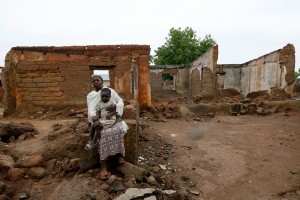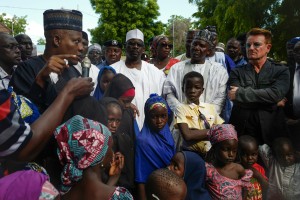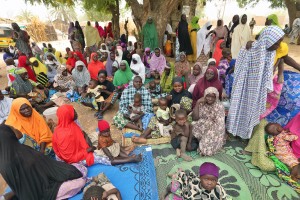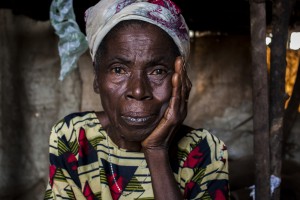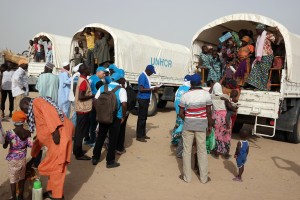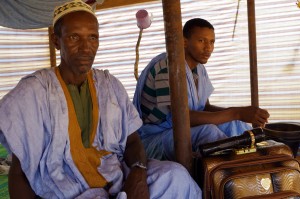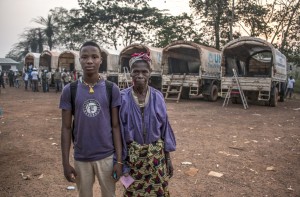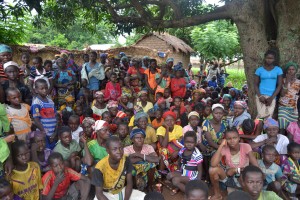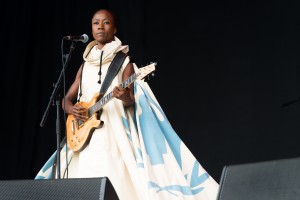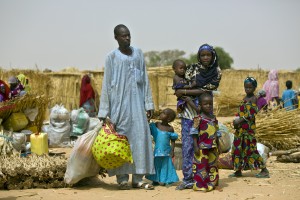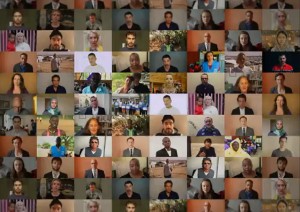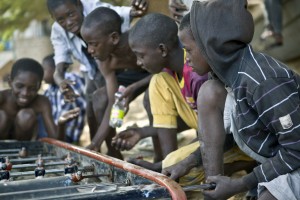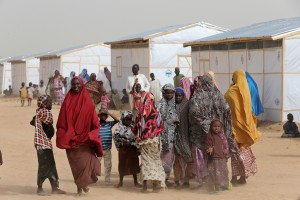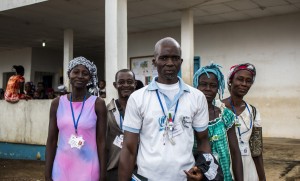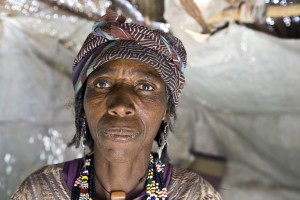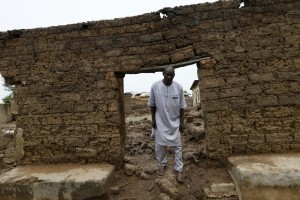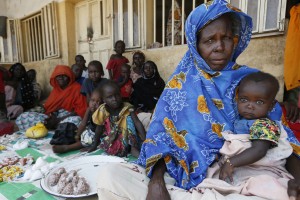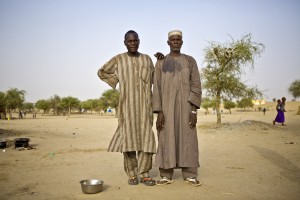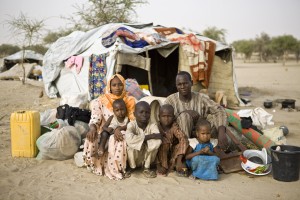Irene dreams of empowering women at her training centre – #WithRefugees
She fled violence in Côte d’Ivoire
Irene, 40 years old: “I came to Liberia in 2002 after the war started in Côte d’Ivoire. It was a Thursday morning in Danané. I was in my father’s house, getting ready to go to work. Someone from my father’s office called to tell me the rebels had killed my father. I loved my father very much. My heart was broken and I was confused. Some rebels came to my father’s house. They raped me – there were five of them. They wanted to kill me. They shot me in the back and ran away.
ICRC took me to Liberia and I woke up in the Saclepea refugee camp, where doctors were operating on me to save my life and the life of the child I was carrying. I was seven months pregnant. Luckily, my boy survived.”
“UNHCR helped me set up a training centre in Monrovia. I teach both Liberians and refugee women because Liberians were very good to us, they welcomed us. So it is my duty to give back to them. I want them to be part of the training to allow them to take care of their families and be useful in society.
“I passed through a lot of hardship. And I know a lot of women who have passed through the same. I tell them not to be discouraged in life. Today, I pulled myself together and through it all I am surviving. So I tell them to be strong and don’t underestimate themselves. Say ‘Yes! I can make it’.”
Irene and her unborn child were displaced by the first Ivoirian civil war, which lasted from 2002 until 2007. The conflict stemmed from disagreements about citizenship, the criteria for presidential eligibility, voting rights and representation in government and was exacerbated by ethnic differences. Some 750,000 Ivorians were internally displaced, and an additional 30,000 to 100,000 fled to Liberia.
Thinking about the pain of losing her father and siblings during the war, Irene does not wish to return. “You know, that day when he left he said, ‘My daughter I am going, I will be back.’ You never expect to receive a call to say that your father has been killed. It is very, very painful. I am hurt today because I loved my father very much. This is why I say I am never going back to Côte d’Ivoire.” Irene dreams of enhancing her training centre to help more refugees and Liberian women to become self-reliant.
Irene has trained over 50 refugees and Liberian women to overcome obstacles, not only by teaching them how to sew or style hair but also by helping them to regain their confidence and self-worth, which many lost during the war. Every week, she invites the women to discuss issues affecting them and how they can rebuild their lives as empowered members of society.
Show your solidarity with refugees like Irene by signing the #WithRefugees petition today.
Traditional gender roles often put women and girls at risk, making it harder to access their rights. Displacement can heighten these risks, exposing women to more discrimination and sexual and gender-based violence. Displacement may also mean that girls and women have to flee alone, making them especially vulnerable to abuse.UNHCR helps refugee women in Liberia become self-reliant through skills training. After completing courses like Irene’s, refugee women receive a certificate and a starter kit.
Le texte en français:
